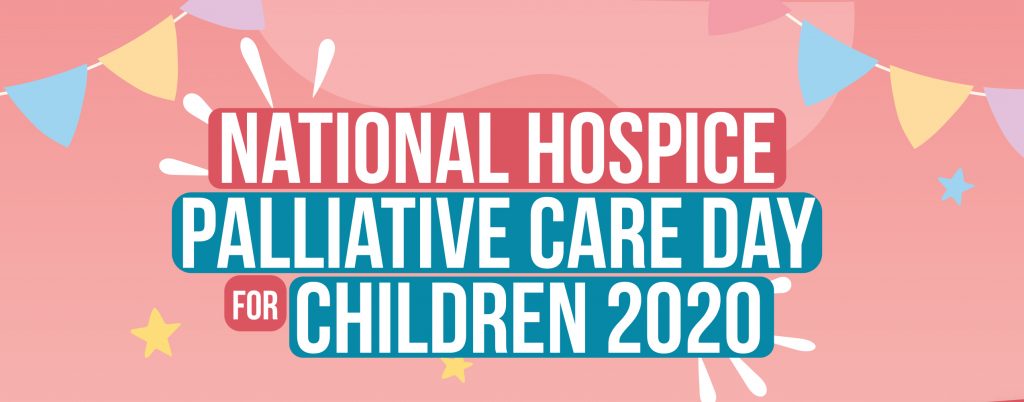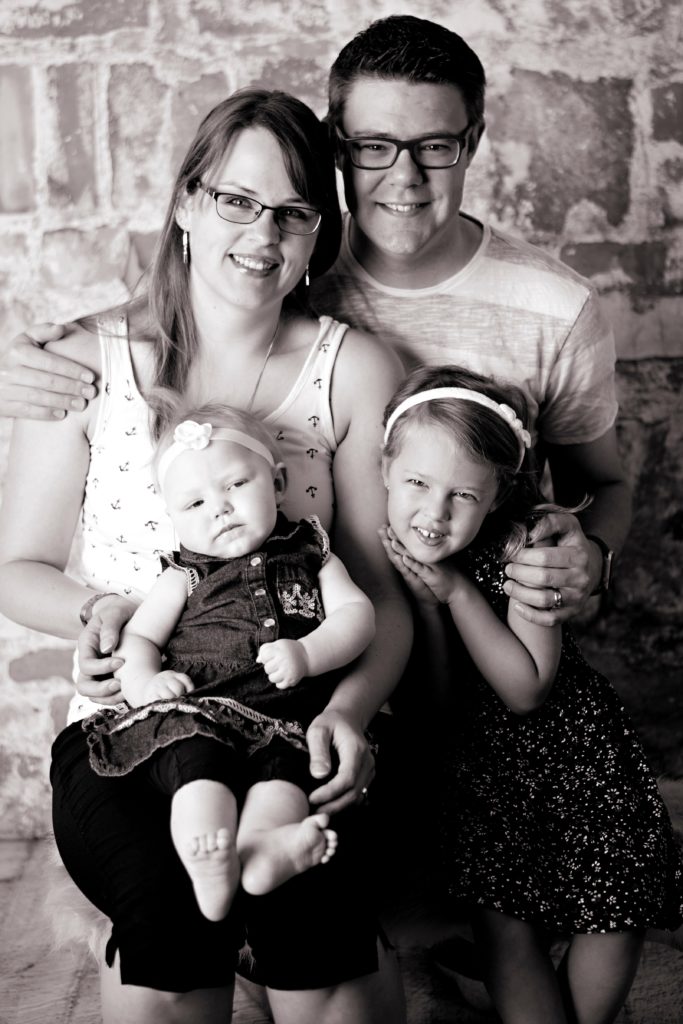
It takes – more than – a village to care for children with serious health conditions
When Abigail (Abby) Brennan was one month old, she began to experience seizures. She was transferred from her local hospital to the pediatric intensive care unit at McMaster Children’s Hospital (MCH). As it became clear that her seizures were a symptom of a much larger problem, Abby and her family were introduced to the Quality of Life and Advanced Care program – QoLA (pronounced like koala) Care, for short – the pediatric palliative care program at MCH.

Dr. Dave Lysecki, lead of the Quality of Life and Advanced Care Program
“In the face of serious illness, the goal of palliative care is to ensure that children and their families have every opportunity to make each day the best day it can be,” says Dr. Dave Lysecki, head of the QoLA Care program.
By the end of her intensive care admission, it was expected that Abby would only have a few days left, and the focus became getting her home, ensuring her comfort, and supporting her family. Days turned to weeks, weeks into months, and months into years.
Abby’s medical challenges remain very complex. They impact her quality of life and ultimately, will lead to a shortened life. However, through robust partnerships between her family, QoLA Care, and many teams in the hospital and community, Abby perseveres.
“If it takes a village to raise a child into an adult, it takes more than a village to support a child who will never have that opportunity,” says Lysecki.

The Brennan family, Jason, Jessica, Emily and Abby, are being cared for by the Quality of Life and Advanced Care Planning team at McMaster Children’s Hospital.
National Hospice Palliative Care Day for Children
October 13, 2020 is the first annual National Hospice Palliative Care Day for Children, co-presented by the Canadian Hospice Palliative Care Association and the Canadian Network of Palliative Care for Children. At the same time, McMaster Children’s Hospital is celebrating the 5-year anniversary of the QoLA Care program.
The MCH program has cared for about 350 children with serious health conditions and their families, including supporting over 100 families through the death of their child — and sometimes multiple children.
“It’s difficult to think about children needing palliative care,” says Lysecki, “but it’s happening. Here. In our communities. Every day. Whether or not you think about it.”
Compassion and empathy
The goal of hospice palliative care is to ease the burden of physical, psychological, emotional, and spiritual or existential suffering that comes along with life-threatening and life-limiting conditions.
This includes prevention and treatment of pain and suffering, coordinated care across settings, and supporting patients and families through difficult decisions.

Abby and older sister Emily
For Abby’s family, the honesty and empathy provided by the QoLA Care team made an essential difference to their well-being.
“Dave told us, with as much compassion as empathy as possible, that Abby’s little body was struggling and they didn’t think she was going to make it,” says Jason Brennan, Abby’s father. “At the time we were devastated, but over time I have grown to appreciate that the best thing you can do is be honest, open and direct. It’s a skill that Dr. Dave has and we appreciate.”
Children’s palliative care is family-centered.
“The role the QoLA Care team plays is important to not only Abby’s care but also to our mental health,” says Brennan. “They also have to be therapists. They have to tell us the worst and then they have to help us rationalize our way through it. They are very good listeners and are excellent at making you feel heard.”
With families every step of the way

Aubree Pegg passed away at ten months old.
Palliative care from McMaster Children’s Hospital supported life and death for Aubree Pegg’s family as well.
Aubree was transferred to MCH’s neonatal intensive care unit shortly after she was born. She had a genetic condition that impairs the development of the body and is known to lead to a shortened lifespan. Aubree received care from many teams and across many environments. QoLA Care provided continuity along that journey.
Each time Aubree’s family came to the emergency department, they were met by members of QoLA Care for support. When they were at home, they had access to 24/7 on-call support from the team.
The team helped the family create an advance care plan to outline their goals and wishes for treatment. This way, they didn’t have to answer the same questions each time they visited the emergency department. The team also provided a symptom management plan for the family to ensure that no matter where Aubree was, she would get the comfort treatments she needed.
Sadly, Aubree passed away at ten months old.
QoLA Care helped ease Aubree’s pain during her last days, and later helped with funeral arrangements and scheduled follow-up bereavement visits. Hospital child-life specialists were able to support Aubree’s brother Caleb through the sibling support program.
“We’re so appreciative not only of them taking care of Aubree but taking care of us, too,” says Aubree’s mother Lisa Pegg. “They told us they’d be with us every step of the way, which they were. They have no idea how much they mean to us.”
Days or decades: A lifetime of hospice palliative care
For children’s hospice palliative care, the needs may begin before birth (in the case of a prenatal diagnosis) and persist until after death (through grief and bereavement). In fact, many children live their whole lives with palliative care needs. For some that is days, for others, it’s decades.
“In short lives, there is great tragedy but also great beauty,” says Lysecki. “There is deep sorrow and unbridled joy. There is fear and hope. There is fragility and strength. One of our guiding principles is that the length of life does not determine the meaning of life.”
Lysecki says one of the main pieces missing to deliver this care most effectively is a children’s hospice. That’s why MCH is exploring opportunities for a children’s hospice in Hamilton.
“There is an identified need in Hamilton for a pediatric hospice facility, such as those in Vancouver, Calgary, Milton, Toronto, Ottawa, Montreal, and Quebec,” he says. “Integrated pediatric hospices complement hospital, community, and home care by offering vital services such as respite admissions, day programming, a warm, home-like setting for end-of-life care, as well as family support groups and formal grief and bereavement programming. “
